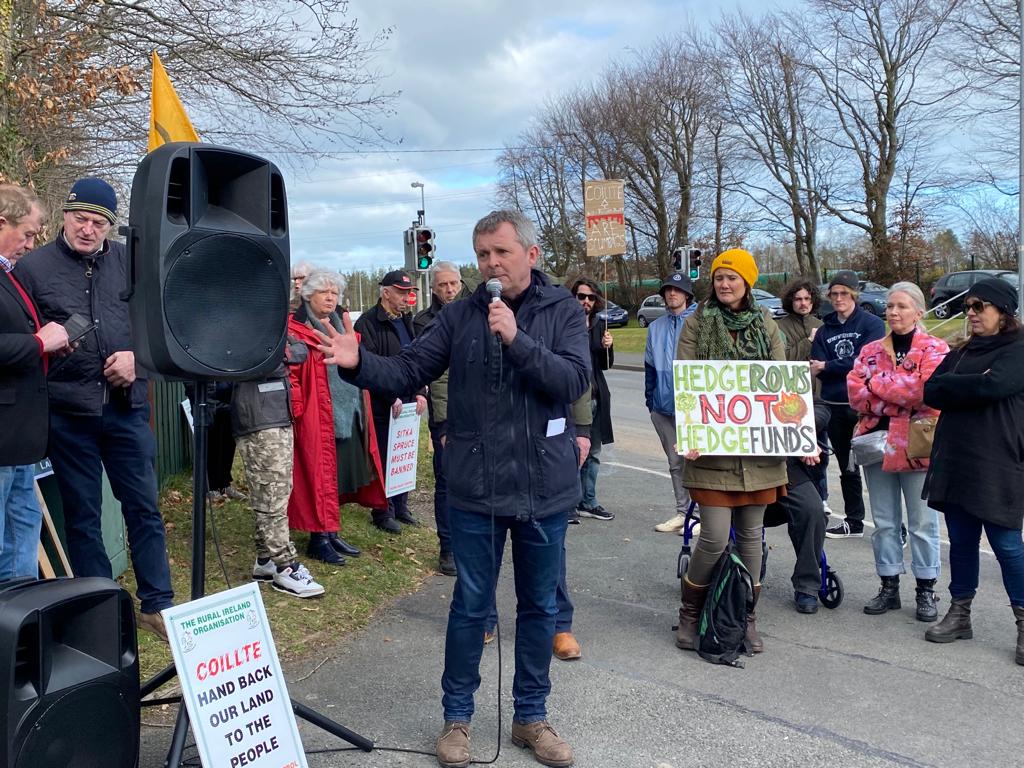The newly established Save Our Forests Alliance, which is comprised of a number of rural and farming organisations, staged a demonstration outside the Coillte headquarters in Newtown Mount Kennedy, Co. Wicklow today (Friday, February 24).
The alliance was protesting against the recent agreement made between Coillte and the UK-based investment fund Gresham House, with demonstrators also calling for broader reform to Coillte’s operations.
Agriland attended the protest and spoke to People Before Profit TD Richard Boyd-Barrett and leader of the Rural Ireland Organisation (RIO) Gerry Loftus, who stated that the deal between the state forester and the investment fund “will never, ever be accepted by the people of rural Ireland.
Click on the YouTube link above to hear from both Loftus and Deputy Boyd-Barrett on why they felt this protest was necessary.

Speaking to Agriland at the event, Deputy Boyd-Barrett stated that the alliance is made up of numerous, community, forestry, farming and local groups all of whom feel reform is needed.
“All of us have come together first to oppose this Gresham House deal where the state forester would be partnering with a vulture fund in our view, and buying up forestry.
“We think that will be bad for communities, bad for the environment, bad for biodiversity and bad for farmers.
“We want to argue for reform of Coillte and the forestry model so that we can get a model that is good for all of those things,” he added.
“The mandate of Coillte has to fundamentally change to be focussed on the common good,” added the Dun Laoghaire TD.
Echoing these statements, Loftus added that he and his fellow protesters are calling for a forestry sector that “is led by communities and farmers and one that gives back to communities and farmers”.
He claimed that Coillte, which is tasked with managing the state-owned Irish forests, has “allowed them” to become “unmanaged, un-thinned, and unfenced”.
“Farm animals that enter unfenced forests [could] end up being caught in fallen down barbed wire, briars and bushes and very often suffer a slow agonising death as farmers can’t access these poorly maintained forests,” he said.
“In addition to this, sitka spruce forests are a serious water pollutant releasing acidic needles into waterways.
“These forests are overpopulated with deer, grazing on farmers’ land, destroying fences and carrying TB resulting in devastating losses to farmers,” he added.